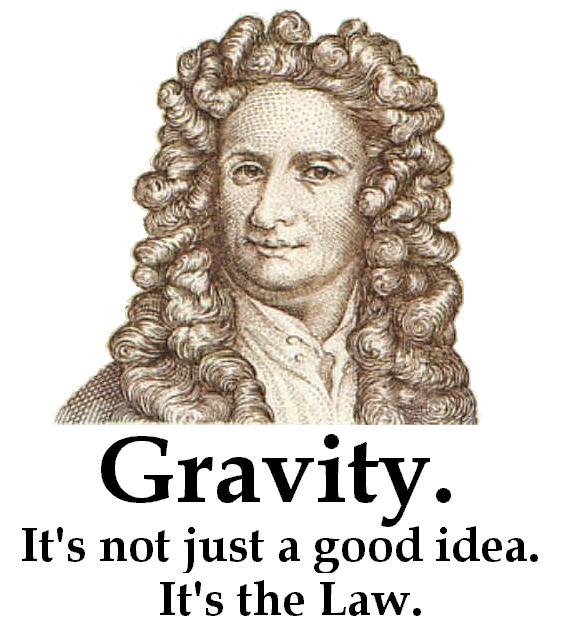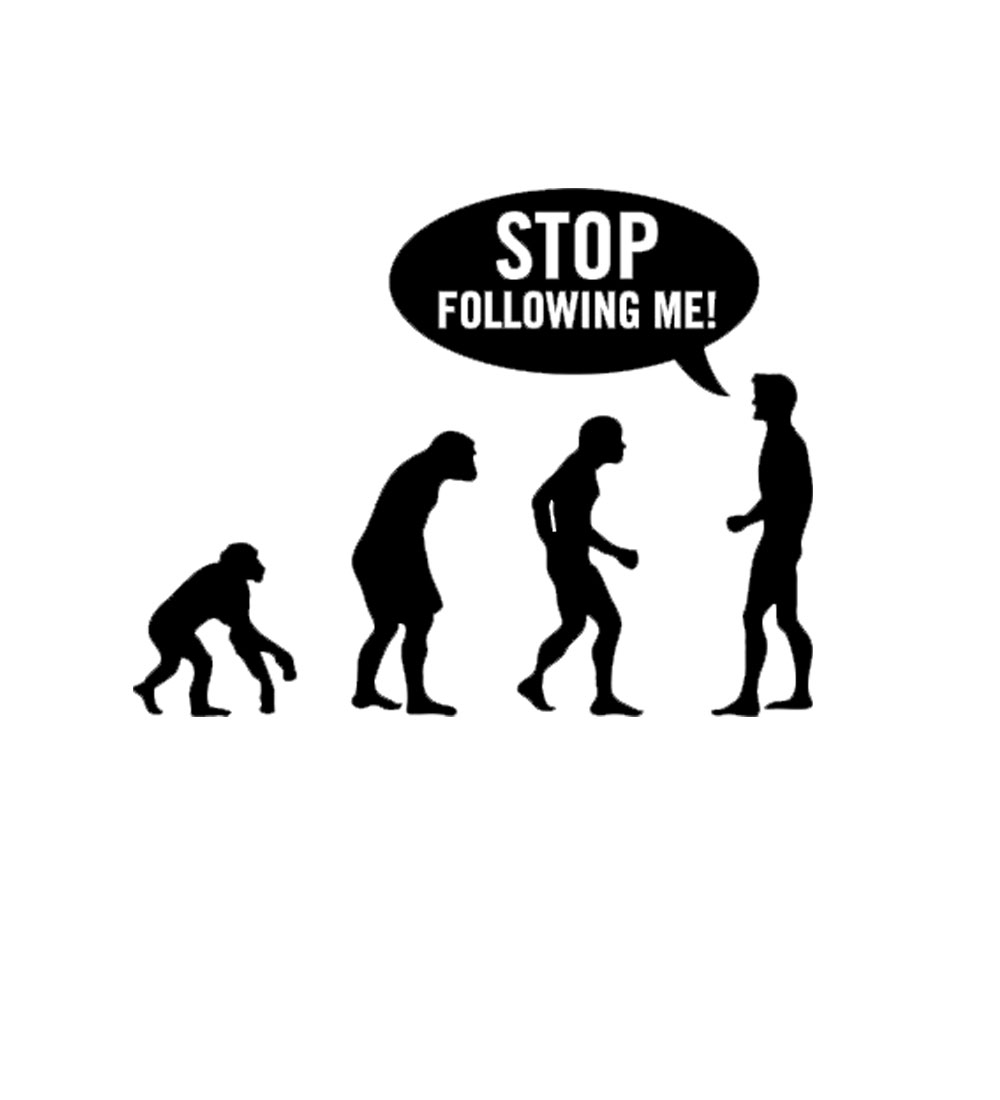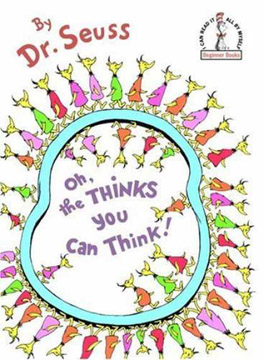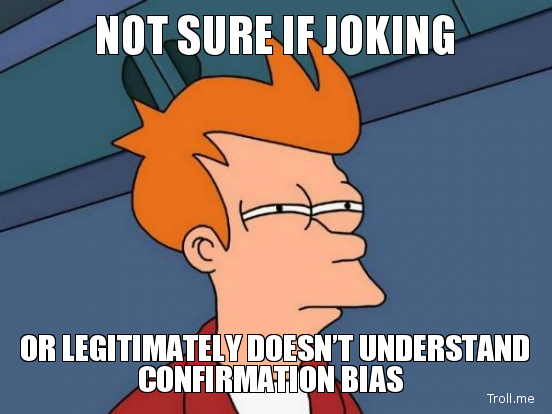I have been reading some pretty strange stuff about Gravity recently. It seems there are some pretty odd folk out there who have taken thinking about physics to a new, possibly unhealthy, level.

Basically, they are crackpots. Well I guess it’s a slippery slope – one day you wonder why the earth is sucking down on you, the next you decide to spend some time on the knotty question. Soon enough you think you’ve got it, it is clearly that the earth is absorbing space which is constantly rushing down around us dragging us with it. Or similar.
So yes, its true, Einstein did not ‘solve’ Gravity, and there is still fame and fortune to be had in thinking about gravity, so this is the example I shall use today.
The trouble with Gravity is that Einstein’s explanation is just so cool! He explained that mass warps space and that the feeling of being pulled is simply a side effect of being in warped space. It sounds so outlandish, but also so simple, that it has clearly encouraged many ‘interesting’ people to have a crack at doing a better job themselves.
So, as a service to all those wannabe physics icons, I offer today a service, in the form of a checklist – what hoops will your new scientific theory have to jump through to get my attention, and that of the so-called ivory tower elite in the scientific community?
Requirement 1: Your theory needs to be well presented
 Yes, it may sound elitist to say, but your documentation/website/paper/video should have good grammar. Yes, yes, one should not use the quality of one’s english to judge the quality of one’s theory, and I know prejudice is hard to overcome, but this is not my point. My point is that in order to understand a complicated thing like a physics theory it needs to be unambiguous. It needs to be clear. It needs to use the same jargon the so called ‘elite’ community uses. Invented acronyms, especially those with your own initials in them, are out.
Yes, it may sound elitist to say, but your documentation/website/paper/video should have good grammar. Yes, yes, one should not use the quality of one’s english to judge the quality of one’s theory, and I know prejudice is hard to overcome, but this is not my point. My point is that in order to understand a complicated thing like a physics theory it needs to be unambiguous. It needs to be clear. It needs to use the same jargon the so called ‘elite’ community uses. Invented acronyms, especially those with your own initials in them, are out.
Requirement 2: Your proposal needs to be respectful

Image courtesy of Wikimedia Commons
Again, this is not about making you bow to your superiors in the academic world. Indeed in the case of Gravity, the physics community is one of the most humble out there. While I agree academia is up it’s arse most of the time, this is about convincing the reader that you know your stuff. In order to do that, you need to show that you know ‘their stuff’ too. If you have headings like “Einstein’s Big Mistake” it is a bit like saying to the reader ‘you are all FOOLS!’ and cackling madly. Don’t do it!
Respect also means you need to answer questions ‘properly’. That means clearly, fully, and in the common language of the community. You cannot say “its the responsibility of the community to test your theory”. This is a great way to piss people right off. It is your responsibility to make them want to. This usually means dealing with their doubts head-on, and if you can do that, I promise you they will then want to know more.
Requirement 3: You need to develop credibility
Sorry, as you can see we have yet to consider the actual merit of the theory itself. I wish it were not so, but we are humans first and scientists second. We cannot focus our thoughts on a theory if we doubt the payback. And if you say that aliens came and told you the scientific theory, then people are unlikely to keep listening, unless, perhaps they’re from Hollywood.
But seriously, credibility is the hidden currency of the world, it opens doors, bends ears and gets funds. It takes professionals decades to build and it is really rather naive to waltz into a specialism and expect everyone to drop their tools and listen to you.
That said, the science world is full of incomers, it is not a closed shop as some would you believe. If you follow requirements 1 and 2, and are persistent (and your theory actually holds water) then you are very likely to succeed.
 Requirement 4: Your theory needs to be consistent
Requirement 4: Your theory needs to be consistent
I have seen some pretty strange stuff proposed. Gravity is a manifestation of the flow of information, or the speed of light is determined by a planet’s density. Find your own at crank.net. Let’s look at this peach as an example: http://www.einsteingravity.com/.
This exhibit is great example of how not to go about promoting your theory. “Monumental Scientific Discovery !” it screams across the top, then the first claim is this:
1) The Acceleration of earth’s Gravity x earth orbit Time (exact lunar year) = the Velocity of Light.
(9.80175174 m/s2 x 30,585,600 s = 299,792,458 m/s)
Now this is rather remarkable. Can it really be that you can calculate the speed of light to 9 significant figures from just the earth’s gravitational acceleration and the length of a year? Intuitively I suspect you could (eventually), but then I started to think, well, what if the earth was irregularly shaped? The gravitational constant is actually not all that consistent depending on where you are either. So I checked, then I noticed he said ‘lunar year’. What? Why? What is a lunar year? Then I calculated that the time he used was 354 days, which isn’t even a lunar year. Add to that that he gives the acceleration of gravity on earth to 9-figures despite the fact that nobody knows it that well (like I said it is location dependent). Does he do the same test for other planets? No. Well what if they have no moon!
So, 0/4 for on our checklist for einsteingravity.com!
Requirement 5: The theory needs to be be consistent with well-known observations
Now if your theory has got past requirements 1-4 , well done to you, you will be welcome to join my table any time. Now is when you may need some more help.
Once a theory is consistent with itself, it now needs to agree with what we see around us. It needs to explain apples falling, moons orbiting, light bending and time dilating. This is the hardest part.
It cannot leave any out, or predict something contrary to the facts. It cannot be vague or wishy-washy. It needs the type of certainty we only get from the application of formal logic – and that old chestnut – mathematics.
No you cannot get away without it, there is no substitute for an equation. Equations derived using logic take all the emotion out of a debate. And they set you up perfectly for requirement #5.
 Requirement 6: The theory needs to make testable predictions
Requirement 6: The theory needs to make testable predictions
If your theory has got past the 5 above, very nice job, I hope to meet you one day.
We are all set, we have a hypothesis and we can’t break it. It has been passed to others, some dismiss it, others are not so sure. How do you create consensus?
Simple, make an impressive prediction, and then test that.
Einsteins field equations for example, boldly provide a ‘shape’ of space (spacetime actually) for any given distribution of mass. With that shape in hand you should then be able to predict the path of light beams past stars or galaxies. These equation claimed to replace Newton’s simple inverse square law, but include the effects of time which creates strange effects (like frame dragging), which, importantly could be, and were, tested.
The beauty of these equations, derived via logical inference from how the speed of light seems invariate, and now proven many times, is that they moved physics forward. Rather than asking, ‘what is gravity’, the question is now ‘why does mass warp space’. It’s a better question because answering it will probably have implications far beyond gravity – it will inform cosmology and quantum theory too.
Conclusion
So if you are thinking of sharing with the world at last your immensely important insights, and want to be listened to, please remember my advice when you are famous and put in a good word for me in Stockholm. But please, if, when trying to explain yourself, and are finding it tough, please please consider the possibility that you are just plain wrong…
————-
Jarrod Hart is a practicing scientist, and wrote this to shamelessly enhance his reputation in case he ever needs to peddle you a strange theory.
Further reading:




















